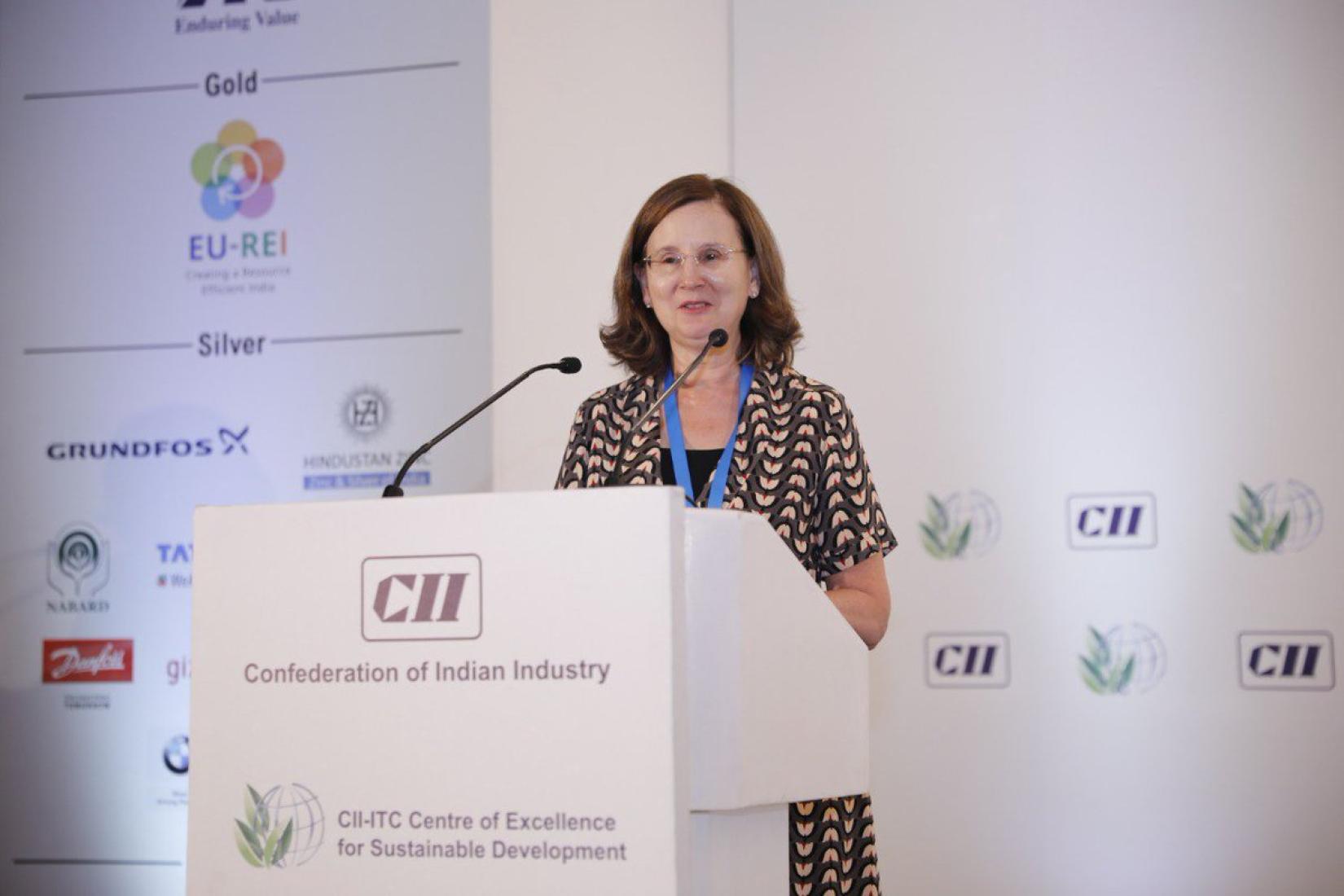Speech
14th CII Sustainability Summit
29 August 2019
Special Plenary: The Un-plastic Economy
Renata Lok-Dessallien, United Nations Resident Coordinator in India
(Speech as prepared)
Honourable…

Special Plenary: The Un-plastic Economy
Renata Lok-Dessallien, United Nations Resident Coordinator in India
(Speech as prepared)
Honourable Minister for Environment, Forest and Climate Change, and Information and Broadcasting, Mr. Prakash Javadekar
Mr Jamshyd Godrej, Mr Kim Stengert, Mr Afroz Shah,
Distinguished guests,
Ladies and Gentlemen,
Namaste,
- I would like to begin by expressing that it is a unique honour to be part of one of the biggest efforts for climate action being undertaken anywhere in the world – here in India. The Government of India, under the leadership of the Honourable Prime Minister, and under your leadership, Minister Javadekar, is leading a movement for change that is catalyzing sustainability, at home, but also around the world.
- At Biarritz, just a few days ago, addressing G7 leaders, the Prime Minister highlighted the centrality of a single-use plastic free economy to sustainable development. He also made this a core agenda of his addresses to the nation – at the Red Fort on Independence Day last month, Mann Ki Baat last week, and through his call for a single-use plastic free India by 2022 at World Environment Day last year.
Satyagraha against single-use plastic
- Minister Javadekar’s message on Independence Day also stressed the need to work in mission mode, to tackle the problem of plastics.
- As the Swachh Bharat Mission was characterized by Mahatma Gandhi’s glasses, symbolic of his philosophical guidance, I would like to extend Gandhi’s strategy of Satyagraha or “to struggle for the truth in the face of resistance” with respect to the un-plastic economy. For the world veritably needs to wage a Satyagraha against single-use plastic of we want our planet to be livable in the years to come.
The scale of the challenge
- The scale of this mammoth plastic problem is all around us. Every single minute, an average of one garbage truck worth of plastic is dumped into our oceans. With 12 billion tonnes of plastic in our oceans by 2050, there will be more plastic in the seas than marine life.
- And single-use plastic is not a small part of this volume. Half of all plastic that is produced is used only once and disposed of as waste.
- The proliferation of plastic waste is not simply a “green issue” either – or simply a matter of one or two Sustainable Development Goals. Plastic littering is affecting social outcomes for vulnerable population groups across the full spectrum of national development. It is making land infertile, choking drains and causing flooding, and endangering the lives of cattle and other livestock who can ingest plastic.
- And some of this plastic takes thousands of years to degrade.
The role of industry
- To get ahead of this huge challenge will require new and strengthened partnerships across stakeholders and at every level.
- I look to CII’s leadership, and to the leadership of India’s biggest corporates like Godrej, and to captains of industry like Mr. Jamshyd Godrej to convene a coalition of industry against plastic pollution.
- Without a doubt, plastic has been an enabler of economic growth. Now is the time to delink economic growth from the ease and waste of single-use plastic. Now is the time to redefine corporate value and development and delink it from the economy of excess.
- Institutionalizing recycling and effective waste management strategies is also paramount. While we aim to phase out single-use plastic, we must also come up with industry-led good practices to save our oceans and ecosystems from plastic.
- This is also an immense opportunity for entrepreneurs: this momentum against dependence on plastic is opening up new markets for waste and plastic processing industries, waste management social enterprises, innovations in biodegradable, plant based, alternative materials, and new businesses, eg. replacing the millions of plastic straws used every day with bamboo or papaya stalk or paper alternatives, or new types of packaging for India’s booming e-commerce
- We are standing today at the threshold of an unprecedented opportunity. I am privileged to be in India in this defining moment, not only as witness to India’s progress, but because I know this: If India achieves the SDGs, the world will achieve them.
UN entities involved in this initiative
UN
United Nations

















